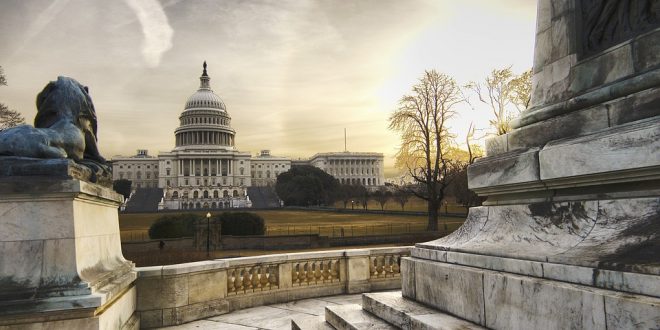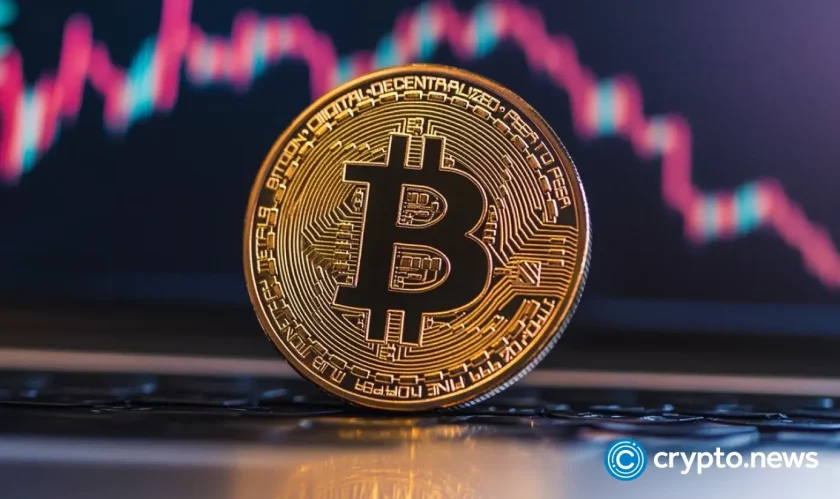Blockchain Regulatory Certainty Act on Congress’s Slate
January 17, 2019 by William Peaster
After being drafted by Rep. Tom Emmer (R-MN) last fall, H.R.528, also known as The Blockchain Regulatory Certainty Act, has been formally introduced to the 116th House of Representatives. For now, the draft bill will head to the House Banking Committee and the House Judiciary Committee for debate before possibly being sent to the full chamber for a roll call vote.
Also read: Bakkt Acquisition: Backend Buyup to Boost Crypto Amid Payments Wars
Subscribe to the Bitsonline YouTube channel for great videos featuring industry insiders & experts
Blockchain Regulatory Act Officially Up for Review
Rep. Tom Emmer and Rep. Darren DeSoto (D-FL), both members of the bipartisan Congressional Blockchain Caucus, formally introduced H.R.528 to the House this week.
Update: The Blockchain Regulatory Certainty Act has been reintroduced by @RepTomEmmer & @RepDarrenSoto. We applaud this bipartisan effort. https://t.co/oDaeCiFjp5
— Coin Center (@coincenter) January 15, 2019
The development comes after Rep. Emmer began working on the bill, along with another bill that would provide tax relief for forked asset holders and a non-binding resolution backing blockchain and cryptocurrencies, in the waning weeks of the 115th Congress.
If actualized, H.R.528 would make it so that blockchain developers and services don’t have to make rather burdensome registrations as money transmitters in the U.S.
This exemption would thus provide “safe harbor” to these providers from the more stringent regulations that traditional money services businesses face in America.
The bill would also seek to formally define “blockchain networks,” “blockchain developers,” and “blockchain services” under domestic law.
For now, H.R. 528 will be sent before the House Banking Committee and the House Judiciary Committee for possible additions of provisions or cut downs. If enough traction is gained in these talks, these committees could send the bill to be voted on by the full House.
What Are the Chances of Passing?
For the Blockchain Regulatory Certainty Act to become the law of the land, more bipartisanship will be in order — a tall task, generally speaking, in the currently tense D.C. political climate.
However, blockchain and cryptocurrencies have been drawing bipartisan interest as of late on Capitol Hill, so the bill isn’t doomed from the start.
For H.R.528 to go the distance, it would have to make it through a vote or votes in the Democrat-controlled Banking and Judiciary committees. And it’s not unusual for bills to make multiple committee reappearances as they’re workshopped.

Then, if it successfully weathered the committee phase, the draft bill would be sent to the entire House of Representatives, which is also currently controlled by the Democrats, for a roll call vote.
If passed here, then the bill would be sent to the Republican-controlled Senate for a final vote. If they passed the bill, it would go to President Trump’s desk for a signature or a veto. If voted down in the Senate, the law would go back to the House for revisions or to die a quiet death.
The Senate and the House could also eventually override President Trump’s veto with respective two-thirds votes if it ever came to it, but it remains to be seen if the proposed law can make it that far for now. Whatever happens, U.S. cryptocurrency traders and entrepreneurs will be watching the situation closely.
What’s your take? Does the United States desperately need a much clearer blockchain regulatory environment? Let us know in the comments section below.
Images via Pixabay




